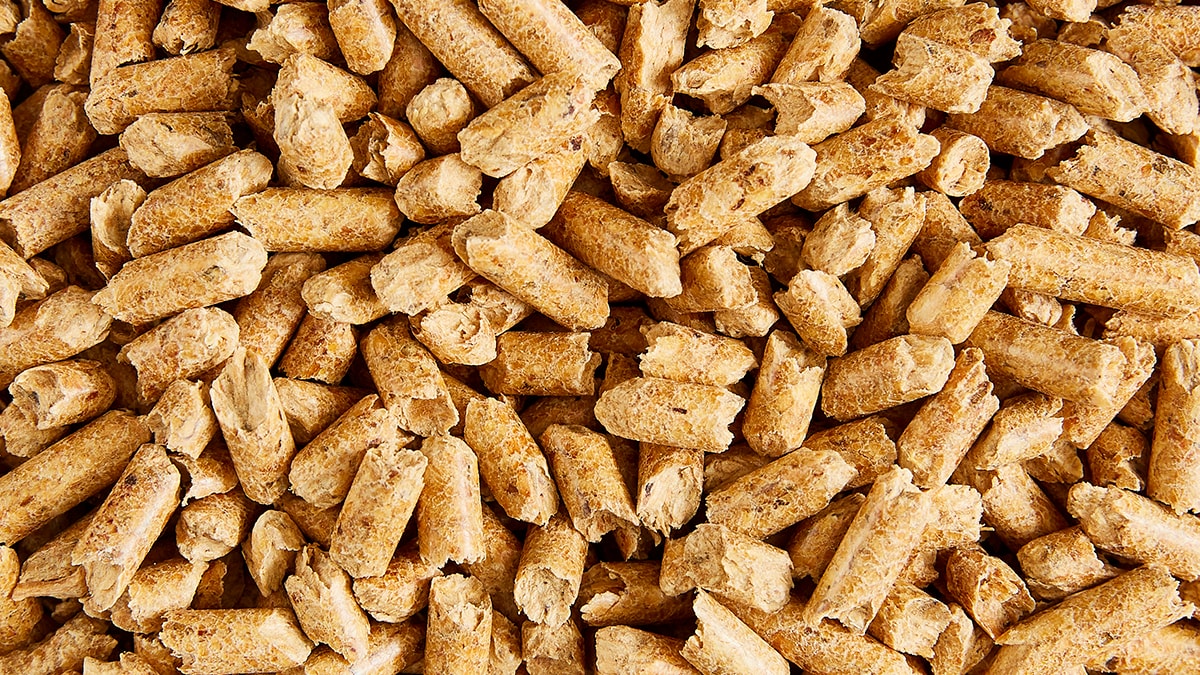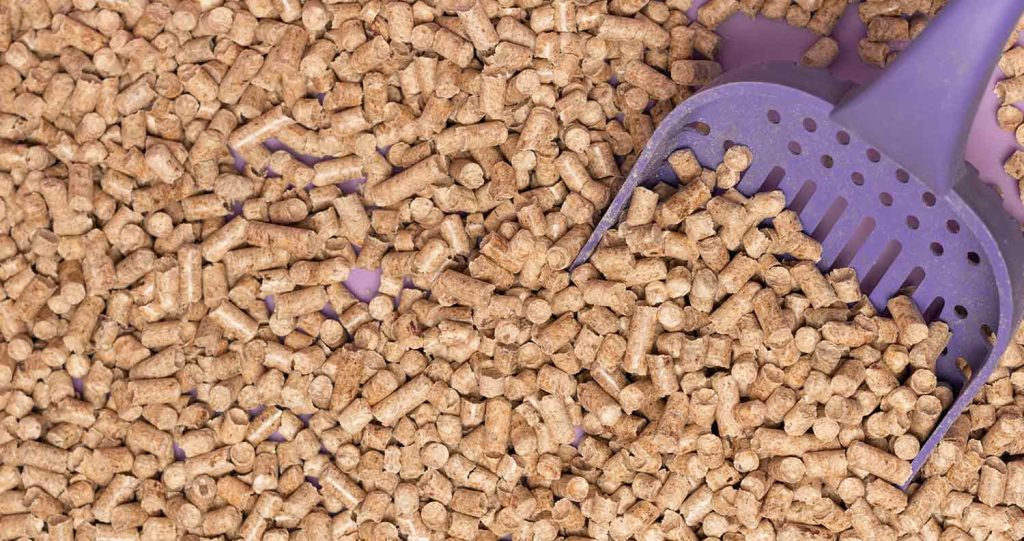Looking for alternatives to traditional cat litter? Consider using natural materials like wood pellets or corn-based litter, which are eco-friendly and sustainable.
Both options offer excellent odor control and absorbency, making them an ideal choice for cat owners.

Credit: be.chewy.com
Natural Alternatives
Looking for natural alternatives to cat litter? Consider trying wood shavings, shredded newspaper, or pine pellets. These options are not only eco-friendly but also offer benefits for both you and your feline friend.
Wood shavings: Made from untreated wood, wood shavings are absorbent and have a natural scent that helps control odors. They are soft on your cat’s paws and provide a comfortable experience.
Shredded newspaper: If you have old newspapers lying around, shredding them can create an affordable cat litter alternative. The ink used in newspapers is safe for cats, and the shredded paper absorbs moisture effectively.
Pine pellets: These compressed pellets are made from pine sawdust and are known for their excellent odor control. When exposed to moisture, the pellets break down into sawdust, making cleanup quick and easy.
Choosing a natural cat litter alternative not only reduces your environmental impact but also allows for a safer and more comfortable experience for your cat. Give these alternatives a try and see which one works best for you and your furry friend.
Biodegradable Alternatives
Cat Litter Alternatives
There are a variety of biodegradable cat litter alternatives available on the market today. These options provide environmentally-friendly solutions for cat owners concerned about the impact of traditional clay litters. Some commonly used alternatives include corn-based litters, wheat-based litters, and walnut shell litters. Corn-based litters are made from natural corn particles that clump when they come into contact with moisture. They are highly absorbent and control odor effectively. Additionally, corn-based litters are lightweight and easy to handle. Wheat-based litters utilize wheat by-products that clump when exposed to liquid. They are also known for their excellent odor control properties. Wheat-based litters are typically dust-free and biodegradable, making them an eco-friendly choice. Walnut shell litters are made from crushed walnut shells and offer excellent absorption capabilities. They are low-dust and naturally control odors. Walnut shell litters are also known for being flushable and compostable.
These biodegradable alternatives provide cat owners with eco-friendly options that are safe for their cats and the environment.Silica Gel Crystal Litters
Looking for alternative cat litters? Consider silica gel crystal litters. These litters offer several benefits for both cats and their owners. Silica gel crystals are highly absorbent, and they work by trapping moisture and odor, keeping the litter box fresh for longer periods. This means less frequent litter box cleanings for you! Silica gel litters also have excellent odor control, minimizing unpleasant smells in your home.
When it comes to brands, there are a variety of options to consider. Some popular choices include XYZ Silica Gel Litter and ABC Crystal Litter. These brands are known for their high-quality products that effectively absorb moisture and neutralize odor. They are also lightweight and easy to handle, making them a convenient choice for cat owners. With silica gel crystal litters, you can provide your cat with a clean and odor-free environment while simplifying your litter box maintenance routine.
Clay Litter Alternatives
Clay litter is a popular choice for cat owners due to its ability to absorb moisture and control odors effectively. However, some individuals prefer to explore alternatives for various reasons. One alternative to clay litter is sodium bentonite litters. Sodium bentonite is a natural clay that forms clumps when it comes into contact with liquid, making it easy to clean up. Zeolite litters are another alternative worth considering. Zeolite is an absorbent mineral that helps trap odors, reducing unpleasant smells in the litter box. Additionally, plant-based clay litters are gaining popularity among eco-conscious cat owners. These litters are made from materials like corn, wheat, and recycled paper, offering a more sustainable option. Ultimately, the choice of cat litter alternative depends on individual preferences and the needs of both the cat and the owner.
Recycled Materials
Looking for cat litter alternatives? Consider eco-friendly options made from recycled materials. These alternatives are not only great for the environment but also provide a comfortable experience for your feline friend.
Paper-based litters are a popular choice among cat owners. These litters are made from recycled paper, offering excellent absorption and odor control. They are also lightweight and easy to clean up, keeping your home fresh and clean.
Corn cob litters provide a natural and biodegradable option. Made from ground corn cobs, they are highly absorbent and eliminate odors effectively. This option is dust-free and gentle on your cat’s paws, ensuring a pleasant litter box experience.
Recycled wood pellet litters are another sustainable choice. These pellets are made from sawdust and wood shavings, providing excellent absorbency and odor control. They also break down naturally, making them easy to dispose of.
Consider these alternatives to traditional cat litters for a greener and more eco-friendly choice. Your cat and the planet will thank you!
Alternative Litter Box Solutions
Cat Litter Alternatives
When it comes to finding alternative solutions for your cat’s litter box, there are a few options to consider. These alternatives can offer convenience and ease of maintenance, making the litter box experience more enjoyable for both you and your feline companion.
Self-Cleaning Litter Boxes
Self-cleaning litter boxes are a popular choice among cat owners. These boxes automatically scoop and remove waste, keeping the litter clean and fresh. With sensors that detect when your cat enters and exits the box, they can effectively eliminate odors and reduce the need for manual cleaning. Some self-cleaning litter boxes even come with disposable trays, making cleanup a breeze.
Top-Entry Litter Boxes
Top-entry litter boxes are another alternative worth considering. These boxes have a lid or a entrance on the top, making it harder for cats to scatter litter outside the box. The enclosed design also offers more privacy for your cat, which can be particularly beneficial for shy or anxious felines. Additionally, top-entry litter boxes can help with odor control as the lid helps to contain smells.
Open-Air Litter Boxes
Open-air litter boxes, also known as low profile or open-top boxes, provide a more natural and spacious environment for your cat. Cats can easily enter and exit these boxes, and the open design prevents any feelings of entrapment. Open-air litter boxes are also easier to clean and maintain, with no lids or compartments to deal with. However, it’s important to note that open-air litter boxes are more prone to litter scattering.
Factors To Consider When Choosing Alternatives
When choosing alternatives to traditional cat litter, there are several factors to consider:
| Factors | Considerations |
|---|---|
| Odor Control | Look for alternatives that have strong odor control capabilities to keep your home smelling fresh. |
| Tracking and Dusting | Avoid alternatives that produce excessive dust and track it all over the house, as it can be a nuisance and cause respiratory problems. |
| Clumping Ability | Choose alternatives that form firm and easy-to-clean clumps, making it simpler to maintain the litter box. |
| Cost-effectiveness | Consider the cost of alternative litters and find options that offer a good balance between quality and affordability. |
By keeping these factors in mind, you can make an informed decision and find a cat litter alternative that best suits your needs and preferences.
Transitioning Your Cat To An Alternative Litter
|
Transitioning Your Cat to an Alternative Litter:
|
Conclusion
To summarize, exploring cat litter alternatives can benefit both your feline friend and the environment. From natural and biodegradable options like wood pellets and corn-based litter to high-tech self-cleaning systems, there are various alternatives to traditional clay or silica-based litters.
By considering these alternatives, you can provide a healthier, more sustainable litter solution for your cat while reducing your ecological footprint. Happy exploring and may you find the perfect alternative that meets both your cat’s needs and your own preferences!


